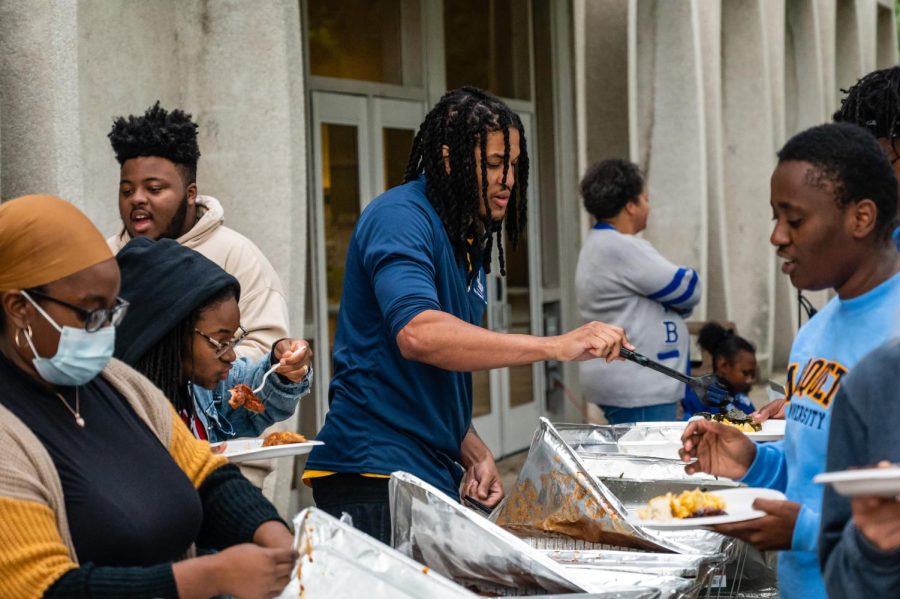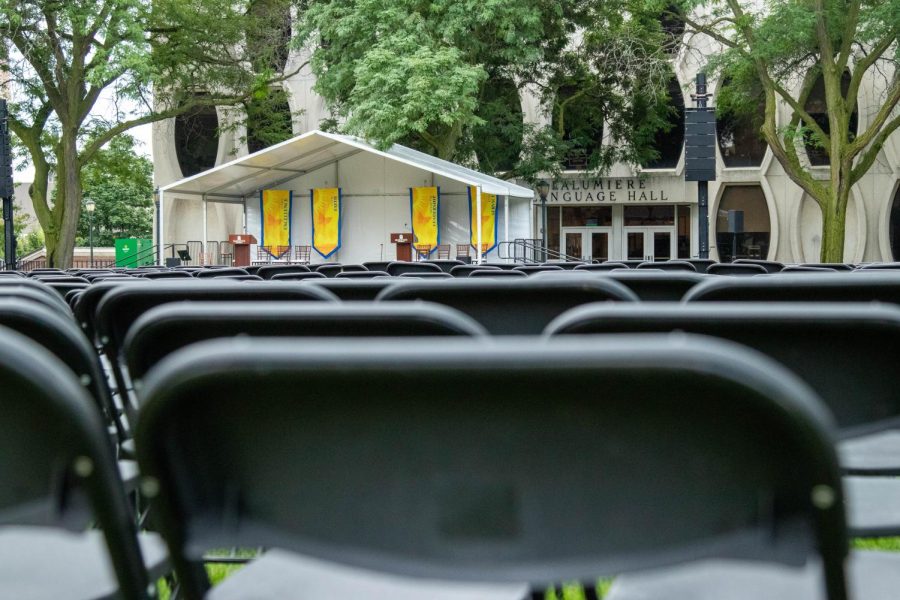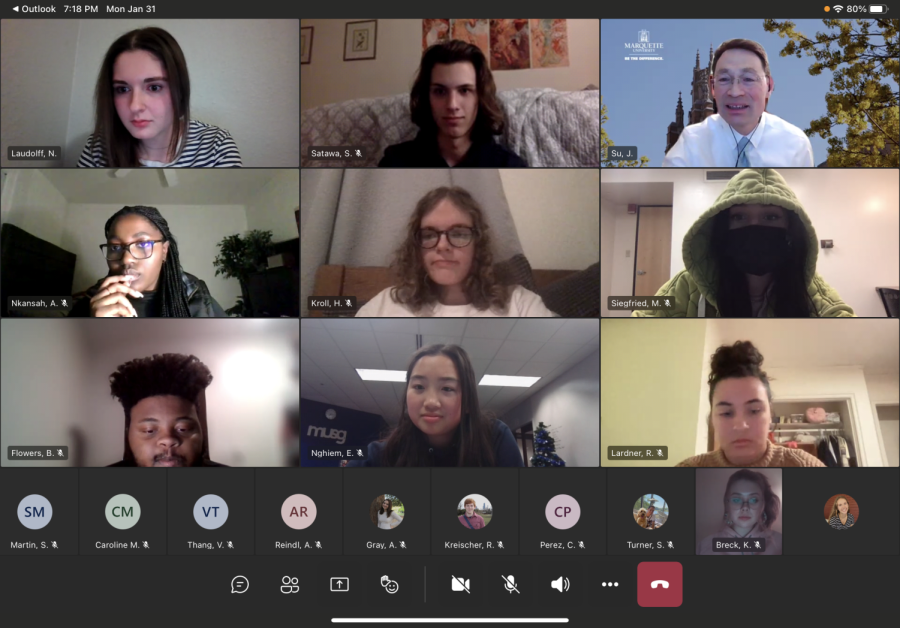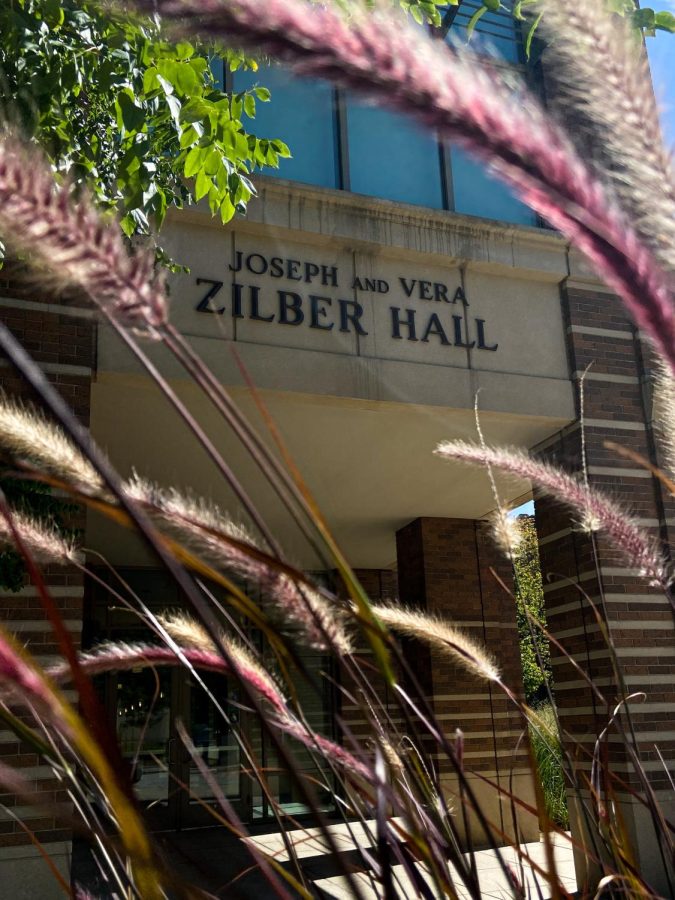With social justice reform sweeping the country, some students are working to promote change right here at Marquette.
Grace Alvarez, a junior in the College of Arts & Sciences, sent an email to members of Marquette leadership, including President Michael Lovell, urging them to enact social justice change at Marquette and to be in line the university’s Jesuit values.
“While spreading awareness and encouraging students to unite in support of justice is an important first step, our actions must extend beyond the power of prayer and reflection,” she said in the June 3 email. “I am imploring that, as a Jesuit university located in America’s most segregated city, we must do more.”
Marquette agreed to invest in several programs, facilities and staff to better support students of color and the broader Black community in Milwaukee Sept. 4.
“I am simply trying to push Marquette to wake up and realize they have an immense amount of power in affecting change in this community,” Alvarez said in an email. She said she’s talking about the power they have to create radical change.
Stephanie Rivera-Berruz, an assistant professor of philosophy, also talked about similar issues in her open letter to Marquette, where she discussed ways in which Marquette must improve its promotion of social justice.
“Personally, I have given up on complaining to peers about what is wrong in the world, and like other college students I have nothing holding me back from being loud and proud about my beliefs,” Alvarez said in an email.
Alvarez said she began her efforts for change because she followed her heart and found that it was clear when to fight for human rights.
“I alone cannot obtain success, I have not even felt success through small feats,” Alvarez said in an email. “Without change from the root of the system there can be no real revolutionary change.”
Katie Breck, a junior in the College of Arts & Sciences, and Mary Grace Riley, a senior in the College of Health Sciences, are two students who have been working with Alvarez to promote change at Marquette.
Riley said that she, Riley and Alvarez are working to hold Marquette accountable and urge them to become actively anti-racist and make effective change.
Breck said they have been continuously contacting various university officials and faculty to discuss ways they can become effectively anti-racist both within the classroom and out and also how to perform activism and take meaningful action within Marquette and the surrounding community.
“We have met with various departments at the university including the Honors Program to alter curriculum requirements and/or create new anti-racist courses regarding systemic racism in Milwaukee and at our school,” Riley said in an email.
“The biggest action we have taken is supporting the Black Student Union in their successful efforts to make campus more diverse and provide more aid to Black students while also making it a safer, more pleasing environment for Black students,” Riley said in an email.
Breck also said it’s important to recognize the work of Black student organizations, such as the Black Student Council, NAACP Marquette, African Student Association and the Impact Movement.
Another student working to promote change at Marquette is Olivia Ward, a senior in the College of Nursing.
“Recognizing your own privilege in a situation and realizing ‘Hey, I might be able to project someone else’s voice’ … is fantastic,” Ward said. “I have loved my experience at Marquette, but I would say that there have been times where myself and other people that are also students of color have experienced hardships on our campus.”
The students activating for change hope to create a safe and more welcoming environment for students of color.
“I think the ultimate goal is really just to foster a space where students of color really feel comfortable being here and can be successful,” Ward said.
Ward said she hopes to promote change in her career in the future and a “more positive campus culture” now.
In order to achieve that goal, Ward has begun to promote change in her sorority, Alpha Chi Omega, where she is the president. She said the sorority will have conversations about race and implicit bias, as well as introduce a diversity inclusion chair onto its executive board.
“Black students on campus have been struggling to find a place at Marquette, struggling to feel welcomed at Marquette, struggling to be treated as an educated, successful individual at Marquette, and struggling to have professors and other staff members believe in their successes at Marquette and beyond,” Riley said in an email.
Riley said that she wants to create a welcoming environment for students of color at Marquette.
“The most important thing is to not leave out the Milwaukee community,” Ward said. “I feel like extending our reach toward our neighbors is really important to start having conversations and learn from other people.”
Despite their efforts, Alvarez said that change in the United States can sometimes take years.
“I stand by our students of color, but I will never understand what they have felt as students here,” Alvarez said in an email. “I will not stop the fight for and with our struggling students.”
Breck said she hopes to see all Marquette community members mobilizing in support of these efforts.
“As a student in solidarity with the work of Black student-led organizations on campus, I hope to see Marquette work effectively with these organizations and for their reforms to be implemented fully,” Breck said in an email.
Riley said she hopes that Marquette will work more closely with its students who are Black Indigenous People Of Color to make necessary changes on campus.
“Change … can really take a lot of time and be a painful process,” Ward said. “The most important way to continue to foster growth and change is through having those difficult conversations, challenging our own privilege, and talking about what we can do to better our community.”
This story was written by Matthew Choate. He can be reached at matthew.choate@marquette.edu










